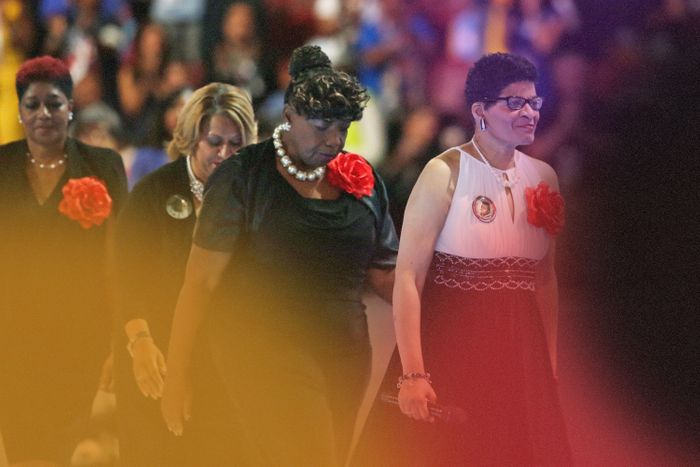
As soon as Mamie Till-Mobley, then Mamie Till, learned of her son’s torture and murder, she got to writing. There was work to be done, a need to understand every detail, a responsibility greater than her own healing. Her memoir — she did not live to witness its publication some 50 years later — reflects, “Emmett was dead. They had pulled his body from the Tallahatchie River … weighted down by a heavy gin fan tied around his neck with barbed wire … I had to get everything down … I was the one who was going to have to explain to people.”
The ritual of a Black mother’s public grief after her child is stolen from this Earth is an American obsession, however numbing. It’s tradition to focus on watching what this Black mother does and what that Black mother says, not because we care for her — we’re focused because we care about what she can do for the rest of us.
Till-Mobley’s instinct wasn’t wrong. She wasn’t imagining more pressure for herself than what was foisted on her; instead, she vocalized Black mothers’ most conflicting internal monologue, the one where we’re conditioned as selfless beings told to withstand more than the rest, represented not as mothers of our own children but mothers of movements and a nation. Within moments of learning their baby is gone, their worst nightmare realized, they are asked to comment, to mourn publicly but to do so with restraint, to impart some kind of hopeful message or motivation, to provide a call to action, to do something, anything, larger with their pain than to grieve.
Nearly six decades after Till-Mobley started writing, Sybrina Fulton found herself in similar circumstances, sitting in court identifying her child’s screams in the background of a recorded 911 call. Fulton was thrust into the spotlight in the most tragic way. She would later say, “At first, I didn’t want to be the voice for Trayvon after he died, but I decided I have no choice. Now, I’m called to act and called to serve.”
She did not stand alone with this burden. Fulton, Lezley McSpadden (Michael Brown’s mother), and Lucy McBath (Jordan Davis’s mother) all translated their worst personal traumas into tangible political and civic action. Not only was each asked to calm her raging community by speaking to crowds while at her own loss for words, all three ran for office to try to find justice for their children. McBath won her race for Congress; Fulton’s and McSpadden’s efforts came up as short as the system that had failed their sons. Where they were willing to do everything in their limited power to recover from this great American debt, they did not receive that backing in return.
The problem with seeing Black mothers as an endless energy source, both in the home and on the world stage, is that it conflates all their sacrifices with superhuman strength. Their every decision becomes one made on behalf of Black people and on behalf of the entire Republic, instead of part of their own restoration. We prioritize our needs over theirs, assuming they can forgo their own. Absolve a country from having to reckon with its own harm-doing, and it’ll turn the responsibility back on these mothers for their loss. And when they ask for help with these pressures, it is rare for such needs to be met.
Black mothers’ uncompromising stance that their tragedies not be taken in vain has shaped much of our history. Till-Mobley’s demand that Emmett’s casket be left open at his funeral propelled the civil-rights movement forward. However, it has grown too heavy for one body to carry a fight that requires us all. It’s time to mother our Black mothers for a change.




